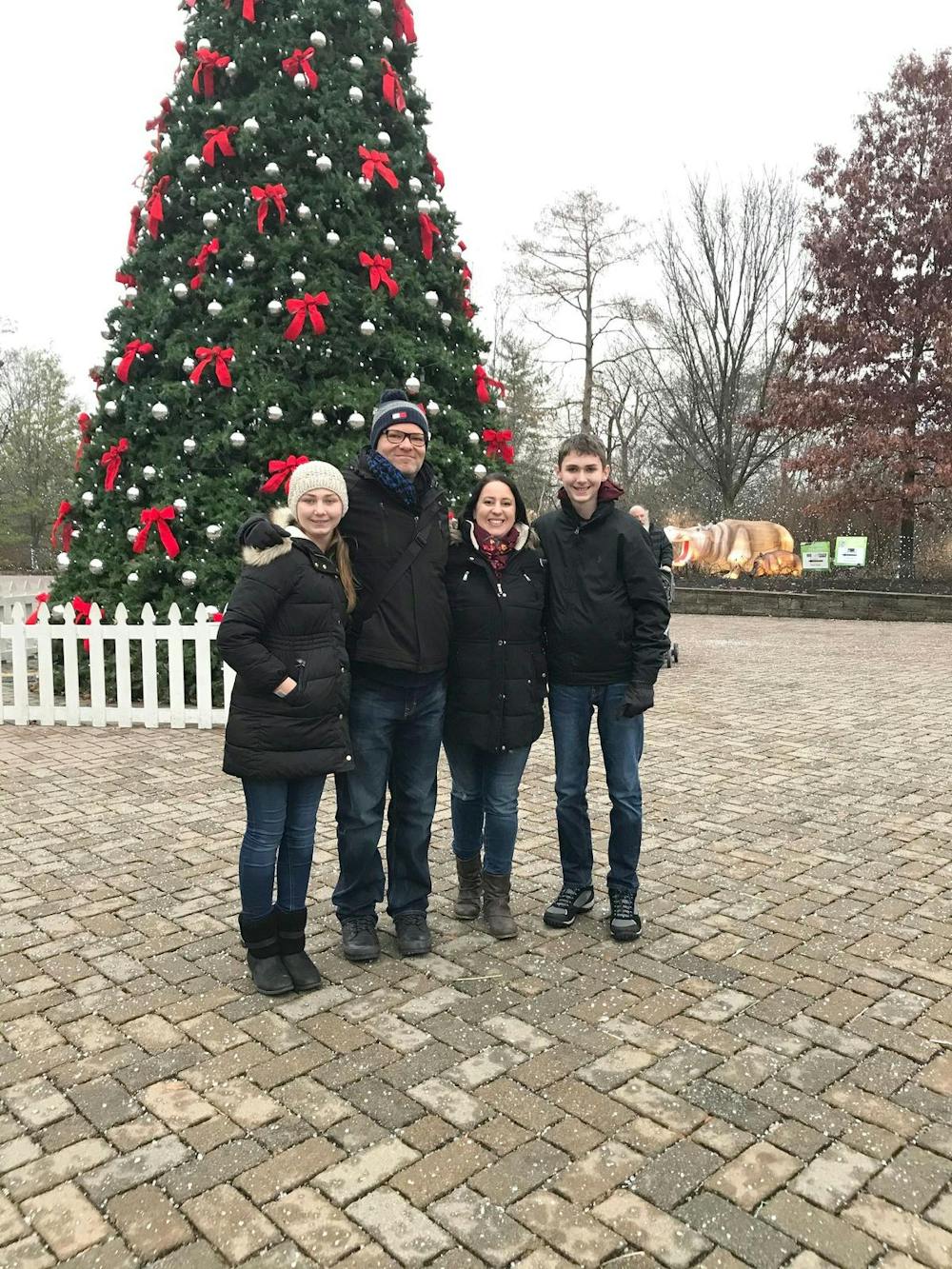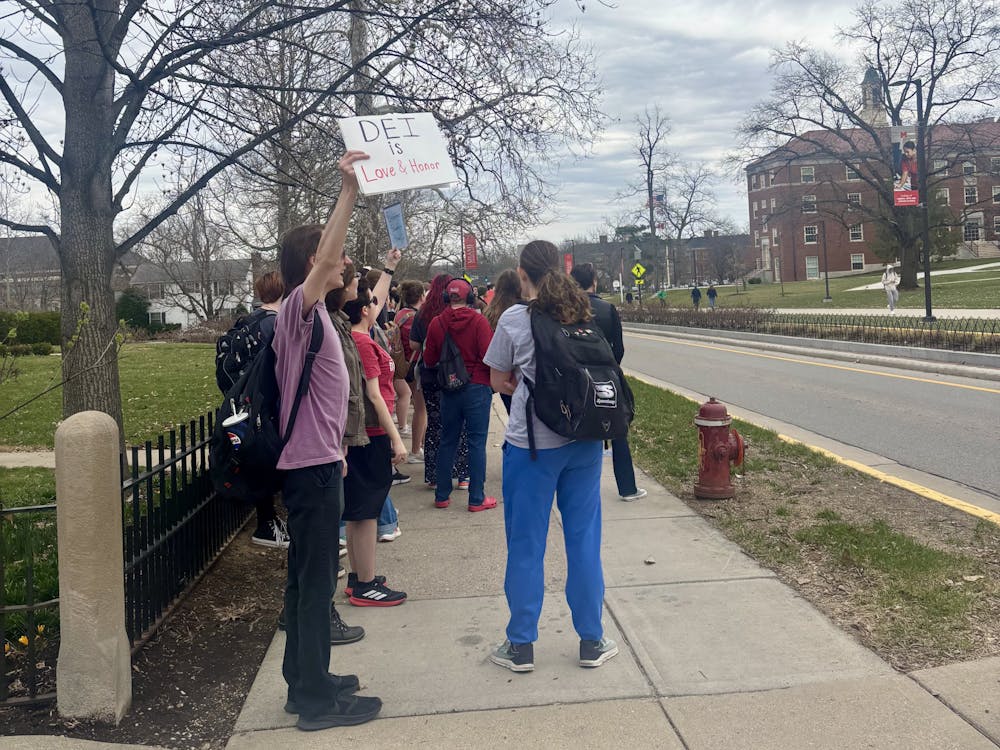Miami University entered the Age-Friendly University (AFU) Global Network just three weeks ago. The AFU Global Network ties Miami to a commitment – with about 69 other universities – to increase education and other services for older people outside the traditional college student age range.
Miami’s AFU workgroup, which includes representatives from Miami’s Scripps Gerontology Center, Institute for Learning in Retirement, Alumni Relations, Institutional Diversity, Student Disability Services and Oxford’s Age-Friendly Initiative, worked on the university’s application to join the global network.
The workgroup outlined a plan in its AFU application to develop webinars geared toward faculty on age-inclusive education that would cover topics like diversity.
Though the application did not detail a timeline for the plan, the learning modules will eventually be available for colleges and universities across Ohio.
But Miami’s AFU status has more to improve for its nontraditional students and for Oxford’s retired community.
Many of Miami’s initiatives are informed by Scripps Gerontology Center research, and the programs serve retirement-age residents of Oxford. For example, Miami’s Recreation Center and various health program opportunities remain open to faculty after they retire.
One of these initiatives is Miami’s Institute for Learning in Retirement. The Institute offers post-career classes for retired people in the Oxford community. Attendance has dropped since the pandemic moved classes remote, but the AFU application recorded 720 students in the program in 2020.
Pam Mayberry is the director of academic program support for the Scripps Gerontology Center and was part of the AFU application workgroup. She said the new AFU status has room to grow.
“We want to make sure that we’re not only serving first-time college students, [but] that we’re serving first-time college students and also possibly older first-time college students,” Mayberry said.
Jaime Wojcik is a student that Mayberry would include in the age-friendly status. Wojcik is 41. He was inspired to retire from the Air Force and become a teacher after he and his wife adopted two kids. In 2017, he came to Miami to pursue a degree in middle childhood education. He drove 35 minutes to get to campus each day.
He struggled to connect with other students in his major classes. He said he was worried about overtaking conversation in class as an older man, and held back in class discussion or tried to bring people in for collaboration.
Wojcik said he worried about creeping female students out if he reached out to them first to join them for group work, and female students were not inclined to reach out to him as an older man, either. Three male students at most would be in an education class. When a professor gave the option to complete class work as a group or alone, he did it alone.
Enjoy what you're reading?
Signup for our newsletter
The commuter group on campus was mostly young people, and so was the campus veterans’ group. Small talk with professors would be his most impactful daily interaction.
“I felt really lonely,” Wojcik said.
Wojcik wishes for a student-to-student mentoring program that would pair younger students with older students. Older students could share life experiences while younger students would share what they know about campus. Like living learning communities that traditional students opt into when they live in dorms, information would be shared about where to eat on campus and where major classes are, but also pass on informal knowledge about classes.
Scripps runs intergenerational programs, including one that pairs nursing home residents with first-generation students, but none for nontraditional students.
Based on interactions that Wojcik had with some education professors, he sensed that they weren’t grading him well on the informal “Student Disposition” grade that monitors attitude and behavior inside and outside the classroom.
“I felt like perhaps some of the coldness I was experiencing was due to my age and gender, but I can’t prove it,” Wojcik said. “My impression was that [it] was a factor. And I owned that and tried to work around that.”
When he reached out to education professors asking for additional advising as a nontraditional student, Wojcik said they ignored him.
Last semester, he withdrew from his classes. He considered transferring to a different university. Instead, Wojcik switched to a regional Miami campus to pursue liberal studies after feeling unsupported by professors and advisers in his last major. He’s not sure what he’s going to do with his new major since it’s a general program, but as a remote student, he feels more supported by professors and is surrounded by more students his age.
“I feel like they’re rooting for me,” Wojcik said. “It feels like how it’s supposed to be.”
Suva Mendoza, a 30-year-old interior design major with two kids, is another non-traditional student. But she is returning to college for the second time.
Mendoza had been working in the New York fashion industry after graduating from a private fashion school in Chicago. She came to Miami two years ago to pivot her career into interior design, because she could only find fashion industry positions in places like New York City or the West coast. This didn’t align with her life as a military wife who had to move her family around.
Mendoza hasn’t needed accommodations before or during her time as a remote student. Her kids are able to handle remote learning on their own for the most part, especially in comparison to the start of the pandemic. Mendoza only needs to step in for the occasional tech issue for her 7-year-old.
“As the younger generation … they are very quick to learn technology,” Mendoza said.
She said most professors, especially the ones she’s become most familiar with in the architecture department, are understanding after finding out she has two kids.
One thing that has frustrated her is when a few professors asked for doctor’s office documentation when her kids were sick and Mendoza couldn’t attend an in-person class.
This required her to go out of her way to take her kids, who were usually contagious, to the doctor’s office for a note that proved they were sick when Mendoza already knew what they were sick with.
“When working professional jobs, I’ve never been stressed to be like, ‘I need this day off,’ even before I had a kid,” Mendoza said. “But especially after I had a kid, I never needed an excuse or to show documentation [in a professional setting].”
Other than the occasional strict attendance requirement, she hasn’t had any issues or experienced age-based discrimination while attending courses at Miami. She’s even brought her 7-year-old to the studio and brainstormed project ideas with her.
As a nontraditional student, Mendoza noted how the age gap between professors and traditional students has played out.
For example, younger students attending college who may be receiving harsh critiques on their work for the first time are more sensitive than Mendoza. Mendoza had developed a thick skin for criticism after watching fashion school professors in Chicago throw her peers’ work in the trash and tell them to start over.
But she said younger generations get a bad rap from older generations.
“I feel like the younger generations don’t get as much credit as they deserve,” Mendoza said. “Professors don’t necessarily do this, but there is a certain degree of like, ‘Oh these young generations,’ you know? And I’m saying this as a general statement, but I do feel that a lot of people shit on young people.”
But ageism goes both ways. Another part of the AFU commitments include fighting ageism and bringing older people into the fold of the Oxford community.
Sarah Miller is 81 and has been a student teacher supervisor at Miami for 40 years. She has lived in Oxford since 1969. Miller’s church activities, volunteering and her daily Zoom meetings — she calls them “adult seánces” — for her various hobbies fill up her time and provide a support system of friends in the area.
But Miller participates in activities put on by the “Age Friendly Oxford” initiative, another selling point for Miami’s AFU status, since Miami and its Scripps Gerontology Center played a part in its creation.
But in spite of the support system of friends these activities provide, Miller said restaurants and clothing stores Uptown are not geared for retirement-age seniors anymore.
Miller also said small Oxford apartments that would fit the budget and needs of retired Oxford seniors looking to downsize are not the target market for landlords, who direct their business to students. She also said senior citizens like her aren’t eager to live near students partying.
“Living here for seniors is difficult,” Miller said.




